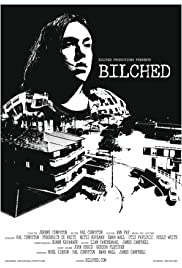
BILCHED
Australia, 2019, 98 minutes, Colour.
Hal Cumpston, Frederick Du Rietz, Mitzi Ruhlmann, Ewan Wall, Otis Pavlovic, River Cumpston, Holly White, Nicholas Bakopoulos- Cooke.
Directed by Jeremy Cumpston.
This is one of those slices of life films, a focus on teenagers and their problems, the raucous aspects of their lifestyle, the possibilities for some to move out of this life while others are stuck in it.
The film is something of a family affair for the Cumpston’s, the film having been written by Hal Cumpston, aged 18, drawing on his own life and reflections, other members of his family portraying teenagers, and the film being directed by his father, Jeremy Cumpston. It has the support of some veterans, including Jeremy Sims as one boy’s father and has a producer on the film, along with Malcolm Kennard in the role of the teacher.
The film is set in the eastern suburbs of Sydney, especially the beach suburbs and on the beachfront. There is quite a mixture of ethnic families in the area, from Europe, from New Zealand, from the Pacific, from Africa.
The plot is familiar. The students in the final year are preparing for leaving, some with prospects, others with very few prospects. Hal, in fact, wants to be an actor and is seen early in the film in an audition. And the film ends with his friends encouraging hell to go to the second edition when he gets a call back, performing effectively, obviously accepted by the panel auditioning him.
How has some younger brothers, one becoming sexually involved with a girl from a more affluent background in school, another one getting into trouble with a friend, both age 12, going to the movies, getting lost, stealing bikes and getting into trouble with other students from more affluent schools.
The language in the film is fairly constant in its bluntness and crudity, insisting that this is what these characters talk like in real life.
On the whole, the adult generation and parents are absent from the action, mentioned but really seen.
Howl has a great liking for a girl that he knew from primary days, meeting her, talking with her, but her interpreting his behaviour in a negative way. Howl also has encounters with a girl from a private school, her father very wealthy, her mother having a breakdown, hiding a boy in her room from her father, clashing with howl and taking strong feminist stances which she challenges. Towards the end of the film they have a rather more interesting discussion about the issues, more understanding and excepting.
There are strong friendships within the group, a lot of peer company, antagonism (including throwing eggs) at boys from a superior private school.
In the latter part of the film, time is taken up with partying, a lot of drinking, some drugs, sexual encounters. In looking at this part of the film, the audience will think that these young men and women have very little aim in life, very little moral anchoring. And, in the vein of many similar American comedies, younger audiences take this as patterns for way of living, as if there is no tomorrow.
Often a very frank film in its characters, details of their communication, self-centredness, pleasure-oriented, strengths and weaknesses in friendships and relationships?